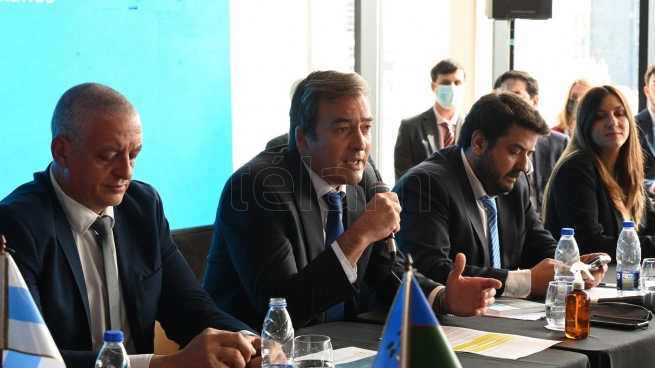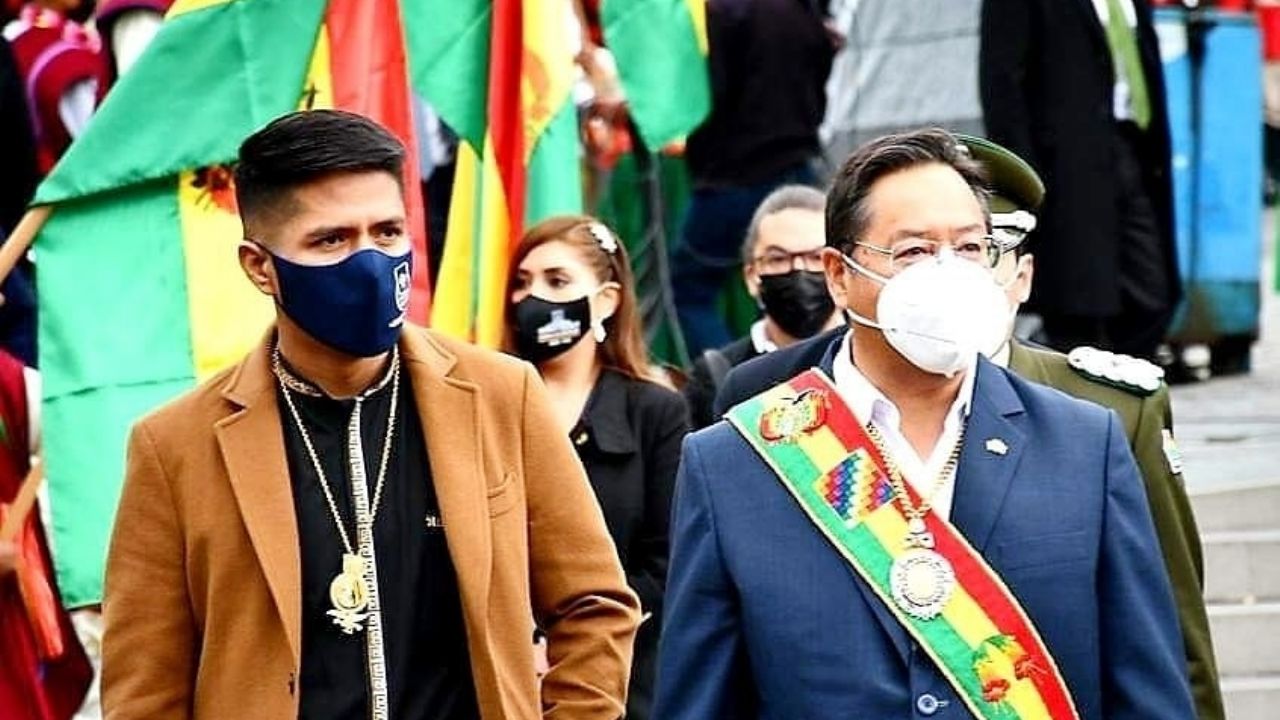The Minister of Justice, Martín Soria, announced this Thursday the creation of two new programs for crime victimsspeaking before the representatives from all provinces of the countryin the framework of the opening of the Federal Council of Justice (Cofejus) that takes place throughout the day at the Kirchner Cultural Center (CCK).
This is the first face-to-face meeting after more than two years of restrictions due to the pandemic, and the presence of President Alberto Fernández is expected to close the meeting.
In his opening speech, Soria announced the creation of two new programs for crime victims, outlined the guidelines around which the Council will be organized and He detailed the advances to “improve the functioning of the provincial justice system and to guarantee the rights of the victims who resort to that system.”
The head of the Justice portfolio was accompanied by the Secretary of Justice, Juan Martín Mena; the Minister of Government and Justice of Tucumán and Vice President of Cofejus, Carolina Vargas Aignasse; the head of the Cabinet of Advisors Unit (UGA), Gimena del Río; ministers, ministers and secretaries of Justice of all the provinces of the country and officials of the national portfolio.
In this framework, Soria began his presentation highlighting the “articulating role of Cofejus to strengthen the administration of justice in our country” and expressed that it was the provinces that “promoted the most significant reforms, at the judicial level, in the last 20 years” such as the implementation of accusatory systems and the application of orality in civil proceedings.”
He also highlighted that “We also have 11 provinces that have jury trials in criminal matters, a fundamental tool to democratize the administration of justice”.
“When we look at the provinces from the Nation, what we have to learn is more than what we have to teach,” the minister stressed.
Meanwhile, Soria presented two new programs that aim to “strengthen access to justice for victims” and guarantee “the rights of the most vulnerable victims, such as children and adolescents.”
On the one hand, it announced the creation of the PatrocinAR programfrom legal sponsorship and interdisciplinary accompaniment for children and adolescents who are victims of sexual abuse made up of lawyers, lawyers and experts from different disciplines such as psychiatry, psychology and social work.
“This is a new public policy, to guarantee and expand legal sponsorship, and also in the necessary and indispensable interdisciplinary accompaniment for the most vulnerable victims: children and adolescents who are victims of abuse,” he explained.
As officially reported, Legal sponsorship implies that the Argentine State guarantees, through this program, a lawyer to people who are going through or have gone through acts of sexual abuse during their childhood or adolescence. for that, for free. In addition, protection measures will be taken, civil and/or criminal cases will be carried out; or the legal advice that it requires will be made.
Soria then announced the launch of another new program: To help. It is the first interactive federal map of resources for victims of violence and serious crimes. The minister explained that “more than 1,000 resources that the national state and local states have available to victims” were systematized and geolocated.
“These are fundamental resources that, many times, do not reach the knowledge of those same victims: we use technology to bring the State closer to the people. Why is this program so important? Because during 2021, the line 137 of our Ministry, which receives complaints and inquiries from victims of family and sexual violence, received 8 inquiries per day from children and adolescents who are victims of sexual abuse,” he stressed.
On the other hand, the Minister highlighted that during the two-year administration it has been possible to “double the number of dual devices for monitoring and tracking aggressors” and it has been possible to go from 944 bracelets in December 2019 to 1,893 today. At the same time, the bracelets that the court ordered to activate tripled (from 559 in 2019 to 1,522 in February 2022).
“Today, 80% of the bracelets are in use, when in December 2019 only 59% were used,” he said, adding that during 2021 it was possible to “incorporate all the provinces that had not yet joined this system.”
He then stressed the importance of strengthening two management guidelines. In this sense, during the event, Soria signed the resolution that creates the Coordination Committee and the Advisory Council for Firearms Policies.
“Despite the fact that it has been provided for in the law since 2006, a decade and a half passed and it was never put into operation,” he explained, adding that “this instance will make it possible to give the essential firearms control policies, which it carries out the National Agency for Controlled Materials (ANMaC), greater territorial and institutional capillarity to prevent the consequences of violence with firearms,” he said.
And in the same tone, he highlighted the importance of “advancing in the exchange of genetic profiles with the provincial genetic banks, to strengthen the national registry linked to crimes against sexual integrity.”
The meeting is attended by provincial ministers Julio Alak (Buenos Aires); Jorge Moreno (Catamarca); Gloria Salazar (Chaco); Julian Maria Lopez (Cordoba); Juan José López Desimoni (Currents); Rosario Romero (Between Rivers); Ariel Rauschenberger (La Pampa); Leandro Zuliani (Santa Cruz); Celia Isabel Arena (Santa Fe); Matilde O’Mill, (Santiago del Estero); Betiana Minor (Black River); Adriana Chaperon (Tierra del Fuego); Carolina Vargas Aignasse (Tucuman); Miguel Angel Zarate (La Rioja); Marcelo Gabriel Pérez (Missions); Cristian Ayala (Chubut) and Marcelo D´Alessandro (CABA).
Likewise, officials from the area of Justice María Higinia Sena (for Formosa); Diego Perez (Salta); Nerina Eusebi Gimbernat (San Juan); Javier Gronda (Jujuy); Marcelo D’Agostino Dillon (Mendoza); Juan Pablo Ponchardi (Neuquen); and Mariano Barrera (San Luis).











